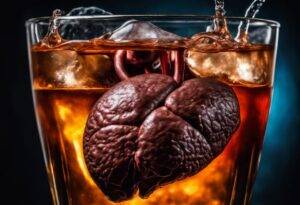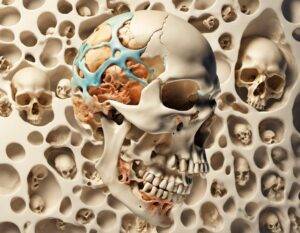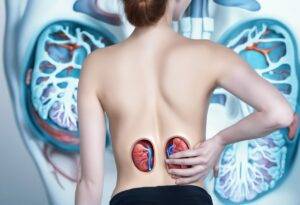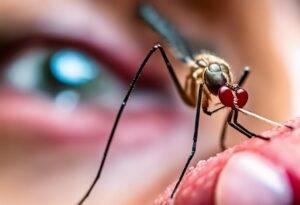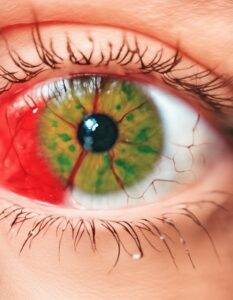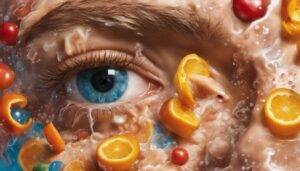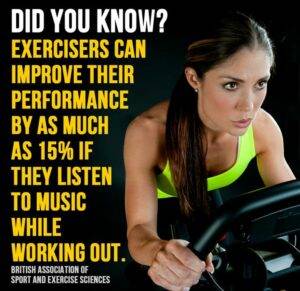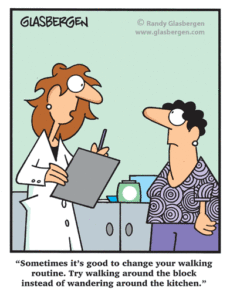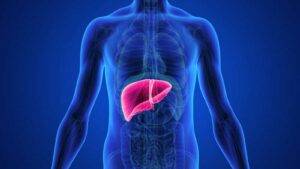Cholesterol
It’s a word we often hear, but how well do we truly understand its impact on our health? From heart disease to diet, cholesterol plays a crucial role in our well-being. In this comprehensive blog post, we delve into the60 most frequently asked questions about cholesterol, providing clear and concise medical answers. Whether you’re curious about the effects of high cholesterol, ways to manage it, or the truth behind common myths, we’ve got you covered. Join us as we unravel the complexities of cholesterol and empower ourselves with knowledge for better health.
Unlocking the Truth: 60 Essential Answers About Cholesterol and Health
The Cholesterol Questions
1. What is cholesterol and why is it essential for the human body?
2. How does high cholesterol affect the cardiovascular system?
3. Are there different types of cholesterol, and if so, what are they?
4. What are the primary risk factors for developing high cholesterol?
5. How does age influence cholesterol levels and related health risks?
6. Is cholesterol a stronger risk factor for heart disease in men or women?
7. Can genetics impact an individual’s cholesterol levels?
8. Are there any particular ethnicities or races that are more prone to high cholesterol?
9. What role does diet play in cholesterol management?
10. How does saturated fat intake impact cholesterol levels?
11. Can consuming trans fats increase cholesterol levels, and if so, how?
12. What is the relationship between cholesterol and triglycerides?
13. How does obesity contribute to high cholesterol levels?
14. Can stress or anxiety affect cholesterol levels, and if so, how?
15. What impact does physical activity have on cholesterol levels?
16. Can cholesterol levels be affected by certain medications, and if so, which ones?
17. How does smoking influence cholesterol levels and overall health?
18. Does alcohol consumption have any effect on cholesterol levels?
19. Are there any benefits to having high-density lipoprotein (HDL) cholesterol?
20. What are the dangers of having low-density lipoprotein (LDL) cholesterol?
21. What is the optimal ratio between HDL and LDL cholesterol?
22. Can high cholesterol levels lead to other health conditions besides heart disease?
23. How can high cholesterol contribute to the development of atherosclerosis?
24. What is familial hypercholesterolemia, and how does it impact cholesterol levels?
25. How does pregnancy affect cholesterol levels in women?
26. Are there any natural remedies or alternative treatments for managing cholesterol?
27. Can losing weight help lower cholesterol levels?
28. What role do statin medications play in cholesterol management, and how effective are they?
29. Are there any potential side effects of taking statins?
30. Can dietary supplements help reduce cholesterol levels?
31. What role does daily fiber intake play in cholesterol management?
32. How does the Mediterranean diet impact cholesterol levels and heart health?
33. Are there any specific cholesterol-lowering foods that should be included in a diet?
34. How does sleep deprivation affect cholesterol levels?
35. Can cholesterol levels fluctuate throughout the day, and if so, why?
36. What are the most accurate diagnostic tests for measuring cholesterol levels?
37. Are there any risks associated with cholesterol-lowering medications?
38. Can cholesterol levels be managed without medication through lifestyle changes alone?
39. How often should cholesterol levels be checked, and at what age should monitoring begin?
40. Are there any warning signs or symptoms of high cholesterol?
41. Can high cholesterol levels be reversed or reduced through lifestyle changes alone?
42. How long does it typically take for cholesterol levels to respond to lifestyle modifications?
43. What are the recommended cholesterol levels for different age groups?
44. Can children and teenagers develop high cholesterol, and if so, how is it managed?
45. How do hormone levels, such as estrogen and testosterone, impact cholesterol?
46. Can menopause affect cholesterol levels in women? If so, how?
47. How does cholesterol impact brain health and cognitive function?
48. Can high cholesterol levels contribute to erectile dysfunction in men?
49. What are the potential long-term effects of untreated high cholesterol?
50. How does cholesterol management differ for individuals with diabetes?
51. What is the connection between cholesterol and stroke risk?
52. How does cholesterol impact liver health?
53. Can high cholesterol levels affect kidney function?
54. What is the relationship between cholesterol and certain types of cancer?
55. Does cholesterol have any effect on eye health or vision?
56. Can cholesterol-lowering medications interact with other drugs or supplements?
57. How does cholesterol management differ for pregnant women?
58. Can children with high cholesterol participate in physical activities without limitations?
59. What educational resources are available for individuals seeking to learn more about cholesterol management?
60. Can cholesterol levels be influenced by environmental factors, such as air pollution?
❤Just a little heads up: some of the links on this site may be affiliate links, which means if you make a purchase through them, we might get a little kickback. But don’t worry, it won’t cost you a cent extra! Think of it as the universe secretly thanking us for helping you find a great deal. Your support keeps the good vibes and coffee flowing and this site growing.
1. What is cholesterol and why is it essential for the human body?
Cholesterol is a fat-like substance that is naturally produced in the liver and is present in every cell in the body. It plays a crucial role in the formation of cell membranes, production of hormones (such as estrogen and testosterone), and synthesis of vitamin D. Cholesterol is also necessary for the digestion and absorption of dietary fats. Without cholesterol, many essential bodily functions would be disrupted.
Bonus Fact: Approximately 75% of the cholesterol in our bodies is produced by the liver, with the remaining 25% coming from our diet.
Source: American Heart Association –
“Understanding Cholesterol“
URL: https://www.heart.org/en/health-topics/cholesterol/about-cholesterol
2. How does high cholesterol affect the cardiovascular system?
High cholesterol levels can lead to the development of atherosclerosis, a condition where fatty deposits (plaques) build up in the arteries. These plaques narrow the arteries and reduce blood flow to the heart and other organs. Over time, if a plaque ruptures, it can form a blood clot, completely blocking the blood flow and causing a heart attack or stroke. In addition, high cholesterol can contribute to the formation of blood clots, which can further increase the risk of cardiovascular events.
Bonus Fact: Atherosclerosis can begin in childhood and progress silently until it manifests as symptoms or complications in adulthood.
Source: National Heart, Lung, and Blood Institute –
“Atherosclerosis and Coronary Artery Disease“
URL: https://www.nhlbi.nih.gov/health-topics/atherosclerosis
3. Are there different types of cholesterol, and if so, what are they?
Yes, there are different types of cholesterol, classified based on their composition and transport in the blood:
– Low-density lipoprotein (LDL) cholesterol: Often referred to as “bad” cholesterol, LDL carries cholesterol particles from the liver to the cells. High levels of LDL cholesterol can contribute to the formation of plaques in the arteries.
– High-density lipoprotein (HDL) cholesterol: Known as “good” cholesterol, HDL helps remove excess cholesterol from the bloodstream and transport it back to the liver for disposal. Higher levels of HDL cholesterol are associated with a lower risk of heart disease.
– Triglycerides: Triglycerides are a type of fat that circulate in the blood. Elevated levels of triglycerides, often seen in combination with high LDL cholesterol and low HDL cholesterol, can also contribute to cardiovascular disease.
Bonus Fact: HDL cholesterol acts as an antioxidant, helping to protect against the damaging effects of LDL cholesterol on the blood vessels.
Source: Mayo Clinic –
“Cholesterol: Top5 Foods to Improve Your Numbers“
URL: https://www.mayoclinic.org/diseases-conditions/high-blood-cholesterol/in-depth/cholesterol/art-20045192
4. What are the primary risk factors for developing high cholesterol?
Several risk factors can contribute to the development of high cholesterol:
– Unhealthy diet: Consuming foods high in saturated fats, trans fats, and cholesterol can increase LDL cholesterol levels.
– Physical inactivity: Lack of regular exercise can lower HDL cholesterol levels and lead to weight gain, both of which can contribute to high cholesterol.
– Obesity or overweight: Excess weight, especially around the waist, can increase LDL cholesterol and decrease HDL cholesterol levels.
– Genetics: Certain genetic conditions, such as familial hypercholesterolemia, can cause high cholesterol levels.
– Age and gender: Cholesterol levels tend to rise with age, and men generally have higher cholesterol levels than premenopausal women. However, these differences diminish after menopause.
Bonus Fact: Smoking tobacco damages the walls of blood vessels and lowers HDL cholesterol, making it an additional risk factor for high cholesterol.
Source: Centers for Disease Control and Prevention –
“High Cholesterol: Overview“
URL: https://www.cdc.gov/cholesterol/ldl_hdl.htm
5. How does age influence cholesterol levels and related health risks?
As individuals age, their cholesterol levels typically increase. This is mainly due to a combination of factors, including changes in metabolism, hormonal fluctuations, and accumulated exposure to dietary and lifestyle habits. High cholesterol levels in older adults can contribute to an increased risk of atherosclerosis, heart disease, and stroke.
However, age alone is not the sole determinant of cholesterol-related health risks. Factors such as family history, overall health, and lifestyle choices (such as diet and physical activity) also play significant roles in influencing these risks. Regular monitoring of cholesterol levels and adopting healthy lifestyle habits can help mitigate the impact of age on cholesterol-related health risks.
Bonus Fact: In older adults, high cholesterol may have a different impact on health outcomes compared to younger individuals, as the association between cholesterol levels and cardiovascular risk becomes more complex.
Source: Journal of Geriatric Cardiology –
“Cholesterol in elderly individuals“
URL: https://www.ncbi.nlm.nih.gov/pmc/articles/PMC4693758/
❤Just a little heads up: some of the links on this site may be affiliate links, which means if you make a purchase through them, we might get a little kickback. But don’t worry, it won’t cost you a cent extra! Think of it as the universe secretly thanking us for helping you find a great deal. Your support keeps the good vibes and coffee flowing and this site growing.
6. Is cholesterol a stronger risk factor for heart disease in men or women?
Cholesterol is a significant risk factor for heart disease in both men and women. However, research has shown that the impact of high cholesterol levels on heart disease risk may vary between genders. In general, men have a higher prevalence of heart disease at younger ages, and high cholesterol levels tend to be a stronger risk factor for them. Women, on the other hand, typically have a lower risk of heart disease until after menopause, when their risk catches up to men. While the exact reasons for these differences are not fully understood, hormonal factors and the protective effects of estrogen in premenopausal women may play a role.
Bonus Fact: High cholesterol levels in women may have a more significant impact on developing heart disease after menopause, as estrogen levels decline during this period.
Source: American Heart Association –
“Gender Differences in Heart Disease“
URL: https://www.heart.org/en/health-topics/consumer-healthcare/what-is-cardiovascular-disease/gender-and-heart-disease
7. Can genetics impact an individual’s cholesterol levels?
Yes, genetics can have a significant influence on an individual’s cholesterol levels. Some people inherit genes that cause them to have naturally high levels of cholesterol, known as familial hypercholesterolemia (FH). FH is an inherited condition that affects how cholesterol is cleared from the bloodstream, leading to increased LDL (low-density lipoprotein) cholesterol, also known as “bad” cholesterol. Individuals with FH are at a much higher risk of developing heart disease compared to those without the condition. Moreover, certain genetic variations can also affect an individual’s response to dietary fat and cholesterol intake, further impacting their cholesterol levels.
Bonus Fact: Familial hypercholesterolemia affects around 1 in 200 to 250 people worldwide.
Source: National Heart, Lung, and Blood Institute –
“Familial Hypercholesterolemia“
URL: https://www.nhlbi.nih.gov/health-topics/familial-hypercholesterolemia
8. Are there any particular ethnicities or races that are more prone to high cholesterol?
Certain ethnicities or races may have a higher prevalence of high cholesterol due to a combination of genetic, lifestyle, and environmental factors. For example, African Americans tend to have higher levels of LDL cholesterol and lower levels of HDL (high-density lipoprotein) cholesterol, which increases their risk of developing heart disease. Hispanics and South Asians are more prone to a condition called metabolic syndrome, which includes a cluster of risk factors such as high cholesterol, high blood pressure, and insulin resistance. Native Americans and Pacific Islanders also tend to have higher cholesterol levels compared to other ethnic groups.
Bonus Fact: Asian Americans generally have lower total cholesterol levels compared to other ethnic groups, but they may still be at risk due to elevated triglyceride levels and increased susceptibility to diabetes.
Source: American Heart Association –
“Race, Ethnicity and Cardiovascular Disease“
URL: https://www.heart.org/en/health-topics/consumer-healthcare/what-is-cardiovascular-disease/race-ethnicity-and-cardiovascular-disease
9. What role does diet play in cholesterol management?
Diet plays a crucial role in managing cholesterol levels. Consuming a healthy diet can help lower LDL cholesterol levels and increase HDL cholesterol levels. A diet rich in fruits, vegetables, whole grains, lean proteins, and healthy fats, such as those found in nuts and olive oil, has been associated with lower cholesterol levels and reduced risk of heart disease. Additionally, limiting the intake of saturated fats and trans fats is important, as they can raise LDL cholesterol levels. Adding dietary fiber, especially soluble fiber, can also help lower LDL cholesterol by binding to it and removing it from the body.
Bonus Fact: Plant sterols and stanols, naturally occurring substances found in plants, can help lower LDL cholesterol when consumed as part of a healthy diet.
Source: Mayo Clinic –
“Top 5 Lifestyle Changes to Improve Your Cholesterol“
URL: https://www.mayoclinic.org/diseases-conditions/high-blood-cholesterol/in-depth/reduce-cholesterol/art-20045935
10. How does saturated fat intake impact cholesterol levels?
Consuming a high amount of saturated fat can raise LDL cholesterol levels, which increases the risk of heart disease. Saturated fats are mainly found in animal-based foods like fatty cuts of meat, poultry with skin, full-fat dairy products, and tropical oils (coconut oil, palm oil). When saturated fats are consumed, they increase the liver’s production of LDL cholesterol, leading to a greater amount of this “bad” cholesterol circulating in the bloodstream. Therefore, it is recommended to limit the intake of saturated fats and replace them with healthier fat options, such as unsaturated fats found in nuts, seeds, avocados, and olive oil.
Bonus Fact: The American Heart Association suggests that saturated fat intake should be limited to less than 6% of total daily calories to help reduce LDL cholesterol levels.
Source: Centers for Disease Control and Prevention –
“Saturated Fat“
URL: https://www.cdc.gov/nutrition/data-statistics/saturated-fat.html
11. Can consuming trans fats increase cholesterol levels, and if so, how?
Yes, consuming trans fats can increase cholesterol levels. Trans fats are artificially produced fats commonly found in processed and fried foods, baked goods, and margarine. When consumed, trans fats raise low-density lipoprotein (LDL) cholesterol levels, commonly known as “bad” cholesterol, while reducing high-density lipoprotein (HDL) cholesterol, known as “good” cholesterol. This imbalance in cholesterol levels can lead to a buildup of plaque in the arteries, increasing the risk of heart disease and stroke.
Bonus Fact: Trans fats have been banned or restricted in many countries due to their harmful effects on cholesterol levels and cardiovascular health. One noteworthy example is Denmark, which became the first country to ban trans fats in 2003.
Source: American Heart Association –
Trans Fats
(https://www.heart.org/en/healthy-living/healthy-eating/eat-smart/fats/trans-fat)
12. What is the relationship between cholesterol and triglycerides?
Although cholesterol and triglycerides are both types of lipids (fats) present in the bloodstream, they have distinct roles. Cholesterol is a waxy substance used by the body to build cells and produce hormones, while triglycerides store excess energy from the food we consume. There is a connection between the two, as high levels of triglycerides are often accompanied by low levels of HDL cholesterol, leading to an increased risk of heart disease.
Bonus Fact: Triglycerides are influenced by lifestyle factors such as diet and alcohol consumption, making them a potential target for lowering cholesterol levels through lifestyle modifications.
Source: National Heart, Lung, and Blood Institute –
Triglycerides
(https://www.nhlbi.nih.gov/health-topics/triglycerides)
13. How does obesity contribute to high cholesterol levels?
Obesity plays a significant role in contributing to high cholesterol levels. Excess body weight, particularly abdominal obesity, increases the production of low-density lipoprotein (LDL) cholesterol, also known as “bad” cholesterol. Additionally, obesity reduces the levels of high-density lipoprotein (HDL) cholesterol, which is responsible for removing excess cholesterol from the bloodstream. Together, these factors lead to a higher concentration of LDL cholesterol and a lower concentration of HDL cholesterol, increasing the risk of developing heart disease.
Bonus Fact: Even a modest weight loss of 5-10% can significantly improve cholesterol profiles and reduce the risk of heart disease associated with obesity.
Source: American College of Cardiology –
Obesity and Cardiovascular Disease
(https://www.acc.org/latest-in-cardiology/articles/2016/03/31/13/09/obesity-and-cardiovascular-disease)
❤Just a little heads up: some of the links on this site may be affiliate links, which means if you make a purchase through them, we might get a little kickback. But don’t worry, it won’t cost you a cent extra! Think of it as the universe secretly thanking us for helping you find a great deal. Your support keeps the good vibes and coffee flowing and this site growing.
14. Can stress or anxiety affect cholesterol levels, and if so, how?
Yes, stress and anxiety can affect cholesterol levels. In response to stress, the body releases stress hormones like cortisol, which can increase the production of LDL cholesterol. Additionally, stress and anxiety may lead some individuals to engage in unhealthy coping mechanisms, such as emotional eating, which can result in elevated cholesterol levels. Prolonged or chronic stress can also disrupt normal eating patterns and hinder efforts to maintain a healthy diet, further contributing to unfavorable cholesterol levels.
Bonus Fact: Chronic stress can alter lipid metabolism and promote inflammation in the body, further exacerbating the negative impact on cholesterol levels.
Source: Mayo Clinic –
Stress and cholesterol: What’s the connection?
(https://www.mayoclinic.org/diseases-conditions/high-blood-cholesterol/expert-answers/stress/faq-20057895)
15. What impact does physical activity have on cholesterol levels?
Regular physical activity has a positive impact on cholesterol levels. Engaging in aerobic exercises like walking, running, cycling, or swimming can increase high-density lipoprotein (HDL) cholesterol, known as “good” cholesterol, which helps remove low-density lipoprotein (LDL) cholesterol, or “bad” cholesterol, from the bloodstream. Physical activity also improves overall cardiovascular health, promotes weight loss or maintenance, and reduces triglyceride levels.
Bonus Fact: Combining aerobic exercises with strength training has been found to have an even more significant effect on improving cholesterol profiles and reducing the risk of heart disease.
Source: American Heart Association –
Physical Activity and Cardiovascular Health
(https://www.heart.org/en/healthy-living/fitness/fitness-basics/aha-recs-for-physical-activity-in-adults)
16. Can cholesterol levels be affected by certain medications, and if so, which ones?
Yes, cholesterol levels can be influenced by certain medications. Some medications can increase cholesterol levels, while others may help lower them.
One class of medications known to increase cholesterol levels is corticosteroids, which are commonly prescribed to reduce inflammation and treat conditions such as asthma, allergies, and autoimmune diseases. These medications can increase the production of cholesterol and decrease the elimination of LDL (low-density lipoprotein) cholesterol, leading to elevated levels.
On the other hand, statins are a type of medication commonly used to lower cholesterol levels. They work by inhibiting an enzyme involved in cholesterol synthesis, thus reducing the production of LDL cholesterol. Statins are widely prescribed for managing high cholesterol and reducing the risk of cardiovascular diseases.
Another group of medications that can affect cholesterol levels is oral contraceptives (birth control pills). Some oral contraceptives contain estrogen, which can increase levels of HDL (high-density lipoprotein) cholesterol and triglycerides while decreasing LDL cholesterol. However, the impact of oral contraceptives on cholesterol levels can vary among individuals.
Bonus Fact: Certain antipsychotic medications, such as clozapine and olanzapine, have been associated with increased cholesterol and triglyceride levels.
Source: American Heart Association –
Medications That Can Raise Your Cholesterol Levels
(https://www.heart.org/en/health-topics/cholesterol/about-cholesterol/medications-that-can-raise-your-cholesterol)
17. How does smoking influence cholesterol levels and overall health?
Smoking has multiple detrimental effects on cholesterol levels and overall health. It has been found to lower levels of HDL cholesterol (commonly referred to as “good” cholesterol) while increasing levels of LDL cholesterol (“bad” cholesterol) and triglycerides.
Cigarette smoke contains several harmful chemicals that can directly damage the lining of blood vessels, leading to the development of atherosclerosis. Atherosclerosis is the buildup of fatty deposits in the arteries, narrowing them and reducing blood flow. Smoking also promotes inflammation and oxidative stress, further contributing to the formation of plaques in the arteries.
Moreover, smoking decreases the effectiveness of HDL cholesterol in removing LDL cholesterol from the bloodstream, resulting in higher LDL cholesterol levels. Additionally, smoking reduces the production of nitric oxide, a molecule that helps keep blood vessels dilated and promotes healthy blood flow.
The combination of increased LDL cholesterol, decreased HDL cholesterol, and the development of atherosclerosis significantly raises the risk of cardiovascular diseases such as heart attacks and strokes.
Bonus Fact: Research has shown that smoking can decrease the effectiveness of cholesterol-lowering medications, such as statins.
Source: Mayo Clinic –
Smoking and Heart Disease
(https://www.mayoclinic.org/diseases-conditions/heart-disease/in-depth/smoking/art-20044589)
18. Does alcohol consumption have any effect on cholesterol levels?
The relationship between alcohol consumption and cholesterol levels is complex and influenced by various factors, including the type and amount of alcohol consumed, individual characteristics, and overall lifestyle habits.
Moderate alcohol consumption, defined as up to one drink per day for women and up to two drinks per day for men, has been associated with some benefits for cholesterol levels. It is believed that moderate alcohol consumption can increase HDL cholesterol levels, which is generally considered beneficial for heart health. Higher levels of HDL cholesterol are associated with a reduced risk of cardiovascular diseases.
However, excessive alcohol consumption can have detrimental effects on cholesterol levels. Heavy drinking can increase triglyceride levels, a type of fat that contributes to atherosclerosis and cardiovascular disease. Excessive alcohol intake can also raise LDL cholesterol levels and increase the risk of developing high blood pressure and other heart-related conditions.
Additionally, it is important to note that the calorie content in alcoholic beverages can contribute to weight gain, obesity, and subsequent negative effects on cholesterol levels and overall health.
Bonus Fact: Red wine, in moderation, has been associated with higher levels of HDL cholesterol due to the presence of antioxidants like resveratrol.
Source: American Heart Association –
Alcohol, Wine, and Cardiovascular Disease
(https://www.heart.org/en/healthy-living/healthy-eating/eat-smart/nutrition-basics/alcohol-and-heart-health)
19. Are there any benefits to having high-density lipoprotein (HDL) cholesterol?
Yes, there are several benefits associated with having high levels of HDL cholesterol. HDL cholesterol is often referred to as “good” cholesterol because it plays a crucial role in protecting against heart disease and maintaining overall cardiovascular health.
One primary benefit of high HDL cholesterol levels is its ability to transport excess cholesterol from the arteries back to the liver for disposal or recycling. This process, known as reverse cholesterol transport, helps prevent the buildup of arterial plaques and reduces the risk of atherosclerosis. By removing LDL cholesterol from the arteries, HDL cholesterol contributes to maintaining clear and healthy blood vessels.
HDL cholesterol also has anti-inflammatory and antioxidant properties, which help reduce inflammation within the arterial walls and protect against oxidative stress that can damage blood vessels. Furthermore, HDL cholesterol can improve endothelial function and promote vasodilation, ensuring healthy blood flow. These effects collectively contribute to the prevention of cardiovascular diseases.
Bonus Fact: Physical exercise, a healthy diet rich in omega-3 fatty acids, and weight loss can increase HDL cholesterol levels.
Source: National Heart, Lung, and Blood Institute –
High Blood Cholesterol: What You Need to Know
(https://www.nhlbi.nih.gov/health-topics/high-blood-cholesterol)
❤Just a little heads up: some of the links on this site may be affiliate links, which means if you make a purchase through them, we might get a little kickback. But don’t worry, it won’t cost you a cent extra! Think of it as the universe secretly thanking us for helping you find a great deal. Your support keeps the good vibes and coffee flowing and this site growing.
20. What are the dangers of having low-density lipoprotein (LDL) cholesterol?
Low-density lipoprotein (LDL) cholesterol, often referred to as “bad” cholesterol, can pose several dangers to overall health, primarily by contributing to the development of atherosclerosis and increasing the risk of cardiovascular diseases.
High levels of LDL cholesterol can lead to the deposition of cholesterol and other substances in the arterial walls, promoting the formation of plaques. Over time, these plaques can grow, narrowing the arteries and restricting blood flow. If a plaque ruptures, it can trigger the formation of blood clots, potentially leading to heart attacks or strokes.
Elevated LDL cholesterol is a major risk factor for cardiovascular diseases such as coronary artery disease, angina (chest pain), heart attacks, and strokes. The higher the LDL cholesterol levels, the greater the risk of these conditions.
Furthermore, LDL cholesterol molecules can undergo oxidation, becoming more harmful and potentially contributing to inflammation and damage to the blood vessel walls. This can further accelerate the progression of atherosclerosis.
Bonus Fact: High levels of LDL cholesterol are often associated with a sedentary lifestyle, poor dietary habits, and obesity.
Source: American Heart Association –
About Cholesterol
(https://www.heart.org/en/health-topics/cholesterol/about-cholesterol)
21. What is the optimal ratio between HDL and LDL cholesterol?
The optimal ratio between HDL (high-density lipoprotein) and LDL (low-density lipoprotein) cholesterol is dependent on an individual’s overall cardiovascular health. Generally, a higher ratio of HDL cholesterol to LDL cholesterol is considered ideal. A ratio of 3.5:1 or higher is often recommended by medical professionals as it implies a lower risk of heart disease. However, it should be noted that this ratio is just one aspect of an individual’s overall lipid profile, and other factors such as triglyceride levels should also be considered for a comprehensive assessment.
Bonus Fact: HDL cholesterol, often referred to as “good” cholesterol, helps remove LDL cholesterol from the bloodstream and carries it back to the liver for processing and excretion.
Source: American Heart Association –
“About Cholesterol Ratios”
(https://www.heart.org/en/health-topics/cholesterol/how-to-get-your-cholesterol-tested/about-cholesterol-ratios)
22. Can high cholesterol levels lead to other health conditions besides heart disease?
Yes, high cholesterol levels can lead to various other health conditions besides heart disease. When LDL cholesterol builds up in the inner walls of arteries, it forms plaques that narrow and harden the arteries, a condition known as atherosclerosis. If these plaques rupture or become fully blocked, they can cause other health complications. Some of the potential outcomes include:
– Stroke: When a plaque ruptures or a blood clot forms, it can block blood flow to the brain, leading to a stroke.
– Peripheral Artery Disease (PAD): It occurs when plaque narrows the arteries supplying blood to the legs, causing pain and reduced blood flow to the lower extremities.
– Carotid Artery Disease: Plaque buildup in the carotid arteries, which supply blood to the brain, can lead to a stroke.
– Aneurysms: Weak spots in artery walls can bulge and form aneurysms, which can rupture and cause severe internal bleeding.
Bonus Fact: High cholesterol levels can also contribute to the development of gallstones, as excessive cholesterol can crystallize and form hardened stones within the gallbladder.
Source: Mayo Clinic –
“Cholesterol: Top foods to improve your numbers”
(https://www.mayoclinic.org/diseases-conditions/high-blood-cholesterol/symptoms-causes/syc-20350800)
23. How can high cholesterol contribute to the development of atherosclerosis?
High cholesterol, particularly elevated levels of LDL cholesterol, can contribute to the development of atherosclerosis. This process starts when LDL cholesterol particles penetrate the inner lining of the arteries, initiating an inflammatory response. The immune cells and cellular debris accumulate at the site, resulting in the formation of fatty deposits known as plaques. Over time, these plaques can grow, harden, and narrow the arteries, impeding blood flow.
When the plaques rupture or become damaged, the body attempts to repair them, often leading to the formation of blood clots. These blood clots can further block blood flow or dislodge and travel to smaller blood vessels, causing severe consequences such as heart attacks or strokes.
Bonus Fact: Atherosclerosis is a slow and progressive disease, often starting in childhood or adolescence due to unhealthy eating habits, lack of physical activity, and genetic factors.
Source: National Heart, Lung, and Blood Institute –
“How Atherosclerosis Develops”
(https://www.nhlbi.nih.gov/health-topics/atherosclerosis)
24. What is familial hypercholesterolemia, and how does it impact cholesterol levels?
Familial hypercholesterolemia (FH) is an inherited genetic disorder that affects the body’s ability to remove LDL cholesterol from the bloodstream efficiently. People with FH have significantly elevated levels of LDL cholesterol, putting them at a higher risk of premature cardiovascular disease. This condition is primarily caused by mutations in genes involved in cholesterol metabolism, such as the LDL receptor gene.
Individuals with FH inherit one mutated copy of the gene from one of their parents, contributing to less effective clearance of LDL cholesterol. The presence of the mutated gene can result in LDL cholesterol levels two to three times higher than normal.
Bonus Fact: FH is estimated to affect around 1 in 250 individuals worldwide, making it one of the most common genetic disorders.
Source: National Organization for Rare Disorders –
“Familial Hypercholesterolemia”
(https://rarediseases.org/rare-diseases/familial-hypercholesterolemia/)
25. How does pregnancy affect cholesterol levels in women?
During pregnancy, cholesterol levels undergo several changes to support the needs of the developing fetus. In early pregnancy, cholesterol production increases to provide essential building blocks for the formation of the fetal brain, nervous system, and other organs. As a result, total cholesterol and LDL cholesterol levels tend to rise.
HDL cholesterol levels also increase during pregnancy, which is beneficial as HDL helps transport excess cholesterol back to the liver for elimination. This elevation in HDL cholesterol occurs to meet the increased energy demands and ensure an adequate supply of cholesterol for the developing baby.
However, cholesterol levels typically return to pre-pregnancy levels within a few weeks or months after childbirth.
Bonus Fact: The increase in cholesterol during pregnancy is a normal physiological response and does not generally pose significant long-term health risks to women with a healthy lipid profile.
Source: Journal of Clinical Lipidology –
“Lipid changes during pregnancy: A review of current knowledge and clinical implications“
(https://www.jaclr.org/article/S1933-2874(17)30536-5/fulltext)
❤Just a little heads up: some of the links on this site may be affiliate links, which means if you make a purchase through them, we might get a little kickback. But don’t worry, it won’t cost you a cent extra! Think of it as the universe secretly thanking us for helping you find a great deal. Your support keeps the good vibes and coffee flowing and this site growing.
26. Are there any natural remedies or alternative treatments for managing cholesterol?
Yes, there are several natural remedies and alternative treatments that can help manage cholesterol levels. These remedies can be used in conjunction with lifestyle modifications and prescribed medications to achieve better results. Some of these remedies include:
– Eating a heart-healthy diet: Consuming foods low in saturated and trans fats, high in fiber (such as fruits, vegetables, and whole grains), and incorporating healthy fats (like omega-3 fatty acids found in fatty fish, flaxseeds, and walnuts) can help lower cholesterol levels.
– Regular exercise: Engaging in physical activity, such as brisk walking, jogging, or cycling, can boost the production of high-density lipoprotein (HDL), also known as “good” cholesterol, which helps remove low-density lipoprotein (LDL), or “bad” cholesterol, from the bloodstream.
– Plant sterols and stanols: These compounds, found naturally in plants, can help reduce LDL cholesterol levels. They are available in supplement form or are added to certain fortified foods.
– Garlic: Studies suggest that garlic may have cholesterol-lowering properties. Including fresh garlic in cooking or taking garlic extract supplements might help to some extent.
– Green tea: Regular consumption of green tea has been associated with lower LDL cholesterol levels. Its antioxidant properties may contribute to this effect.
– Red yeast rice: This traditional Chinese medicine has been shown to have cholesterol-lowering properties. It contains a natural statin-like compound called monacolin K. However, it’s important to note that red yeast rice should only be taken under medical supervision as its potency can vary and it may interact with other medications.
Bonus Fact: Niacin, also known as vitamin B3, can help raise HDL cholesterol levels and lower LDL cholesterol levels. It is available in supplement form but should only be taken under a doctor’s guidance due to potential side effects.
Source: Mayo Clinic –
Natural remedies for high cholesterol:
https://www.mayoclinic.org/diseases-conditions/high-blood-cholesterol/in-depth/cholesterol/art-20045192
27. Can losing weight help lower cholesterol levels?
Yes, losing weight can help lower cholesterol levels. Excess weight, particularly around the waist, is associated with higher levels of LDL cholesterol and triglycerides, and lower levels of HDL cholesterol. Losing weight can positively impact cholesterol levels in the following ways:
– Reducing LDL cholesterol: Losing weight, especially visceral fat, can help decrease LDL cholesterol levels.
– Increasing HDL cholesterol: Weight loss can lead to an increase in HDL cholesterol levels, which helps remove LDL cholesterol from the bloodstream.
– Improving insulin sensitivity: Weight loss can enhance insulin sensitivity, which in turn can improve cholesterol levels. Increased insulin sensitivity helps to lower triglyceride levels and raise HDL cholesterol levels.
– Promoting a healthier lifestyle: Successful weight loss often involves adopting healthier habits, such as regular physical activity and a balanced diet, both of which can positively influence cholesterol levels.
Bonus Fact: For every kilogram (2.2 pounds) of weight loss, there may be a corresponding decrease of approximately 1% in LDL cholesterol levels.
Source: American Heart Association –
Losing Weight:
https://www.heart.org/en/health-topics/weight-loss/losing-weight
28. What role do statin medications play in cholesterol management, and how effective are they?
Statin medications are the most commonly prescribed drugs for managing cholesterol levels, particularly high LDL cholesterol. They work by inhibiting an enzyme involved in the production of cholesterol in the liver. The role of statins in cholesterol management includes:
– Lowering LDL cholesterol: Statins effectively reduce LDL cholesterol levels, sometimes by more than 50%. This is highly beneficial, as high levels of LDL cholesterol contribute to the formation of plaque in the arteries, increasing the risk of heart disease.
– Raising HDL cholesterol: Statins may modestly increase HDL cholesterol levels, further improving the lipid profile.
– Reducing triglycerides: While statins primarily target LDL cholesterol, they can also lower triglyceride levels, particularly in individuals with high triglyceride levels.
– Stabilizing plaques: Statins have a secondary role in preventing plaque rupture and stabilizing existing plaques, reducing the risk of heart attacks or strokes.
Statin medications have been extensively studied and proven to be highly effective in reducing cholesterol levels and decreasing the risk of cardiovascular events.
Bonus Fact: Statins are generally most effective when taken in the evening, as this is when the body’s cholesterol production is at its highest.
Source: American College of Cardiology –
Statins:
https://www.acc.org/~/media/Non-Clinical/Files-PDFs-Excel-MS-Word-etc/Tools%20and%20Practice%20Support/Quality%20and%20Performance/Statins%20-%20Updated%20%28201706%29.pdf?la=en
29. Are there any potential side effects of taking statins?
While statin medications are generally safe and well-tolerated, like any medication, they may have potential side effects. Common side effects of statins include:
– Muscle pain and weakness: Some individuals experience muscle pain, tenderness, or weakness while taking statins. In rare cases, this can progress to a serious condition called rhabdomyolysis.
– Liver damage: Statins can occasionally cause liver enzyme abnormalities, although severe liver damage is extremely rare.
– Digestive issues: Some people may experience digestive problems, such as nausea, diarrhea, or constipation when taking statins.
– Increased blood sugar levels: In a small percentage of people, statins may slightly elevate blood sugar levels. This is more common in individuals already at risk of developing diabetes.
It’s essential to discuss any concerns with a healthcare provider, as the benefits of statins usually outweigh the potential risks.
Bonus Fact: Coenzyme Q10 (CoQ10) levels in the body may be reduced by statin use. Supplementing with CoQ10 might help alleviate muscle-related side effects, although further research is needed.
Source: Mayo Clinic –
Statins: Are these cholesterol-lowering drugs right for you?
https://www.mayoclinic.org/diseases-conditions/high-blood-cholesterol/in-depth/statins/art-20045772
30. Can dietary supplements help reduce cholesterol levels?
Certain dietary supplements may help reduce cholesterol levels, but their effectiveness varies. It’s important to note that dietary supplements should not be used as a substitute for prescribed medications or lifestyle changes. Some supplements that may have a positive impact on cholesterol levels include:
– Omega-3 fatty acids: Fish oil supplements, which contain omega-3 fatty acids, have been shown to modestly reduce triglyceride levels. However, they may not have a significant effect on LDL cholesterol.
– Soluble fiber supplements: Certain types of fiber, such as psyllium, can help lower LDL cholesterol levels when consumed as supplements. These supplements work by reducing the absorption of cholesterol in the intestines.
– Plant sterols and stanols: These supplements, as mentioned earlier, can help lower LDL cholesterol levels by inhibiting its absorption in the intestines.
It’s crucial to discuss the use of any dietary supplements with a healthcare provider, as some may interact with medications or have potential side effects.
Bonus Fact: While red yeast rice is sometimes considered a dietary supplement for reducing cholesterol, it contains naturally occurring statins and therefore should be approached with caution and medical supervision due to the potential for inconsistent potency and drug interactions.
Source: National Center for Complementary and Integrative Health –
Cholesterol and Complementary Health Approaches: What the Science Says:
https://www.nccih.nih.gov/health/cholesterol-and-complementary-health-approaches-what-the-science-says
❤Just a little heads up: some of the links on this site may be affiliate links, which means if you make a purchase through them, we might get a little kickback. But don’t worry, it won’t cost you a cent extra! Think of it as the universe secretly thanking us for helping you find a great deal. Your support keeps the good vibes and coffee flowing and this site growing.
31. What role does daily fiber intake play in cholesterol management?
Daily fiber intake plays a crucial role in managing cholesterol levels. Soluble fiber, specifically, has been shown to help lower LDL (bad) cholesterol by preventing its absorption in the intestines. It acts as a sponge, binding to cholesterol molecules and aiding their excretion from the body. Moreover, fiber can also promote the production of beneficial gut bacteria that produce short-chain fatty acids. These fatty acids, such as propionic acid, help inhibit cholesterol synthesis in the liver, further reducing cholesterol levels.
Bonus Fact: Consuming just 5-10 grams of soluble fiber per day can reduce LDL cholesterol levels by approximately 5%.
Source:
Soluble Fiber and Cholesterol
URL: https://www.ncbi.nlm.nih.gov/pmc/articles/PMC3331579/
32. How does the Mediterranean diet impact cholesterol levels and heart health?
The Mediterranean diet has been widely recognized for its positive impact on cholesterol levels and heart health. This dietary pattern emphasizes the consumption of fruits, vegetables, whole grains, legumes, fish, and healthy fats while limiting red meat and processed foods. It is rich in monounsaturated fats, such as those found in olive oil, which can help lower LDL cholesterol levels. Additionally, the diet includes plenty of fiber from plant-based foods, which aids in cholesterol management. Studies have shown that following a Mediterranean diet reduces the risk of heart disease and stroke.
Bonus Fact: Mediterranean populations have been found to have significantly lower rates of heart disease compared to countries with Western diets.
Source:
Mediterranean Diet and Cardiovascular Disease Prevention
URL: https://www.nejm.org/doi/full/10.1056/NEJMoa1200303
33. Are there any specific cholesterol-lowering foods that should be included in a diet?
Yes, there are several specific foods that have been found to have cholesterol-lowering properties and should be included in a heart-healthy diet. These include:
– Oats and barley: These whole grains are rich in soluble fiber, which helps reduce LDL cholesterol levels.
– Fatty fish: Fish like salmon, mackerel, and sardines are high in omega-3 fatty acids, which have been shown to lower triglyceride levels and reduce heart disease risk.
– Nuts: Almonds, walnuts, and other nuts contain plant sterols, fiber, and healthy fats that can help lower LDL cholesterol levels.
– Legumes: Beans, lentils, and chickpeas are excellent sources of soluble fiber and plant-based proteins that can aid in cholesterol management.
– Olive oil: The monounsaturated fats in olive oil have been associated with improved cholesterol levels and heart health.
Bonus Fact: Consuming just two servings of fatty fish per week has been shown to lower the risk of heart disease by up to 15%.
Source:
Cholesterol-Lowering Foods
URL: https://www.ncbi.nlm.nih.gov/pmc/articles/PMC4210907/
34. How does sleep deprivation affect cholesterol levels?
Sleep deprivation has been linked to negative effects on cholesterol levels. Lack of sleep can lead to metabolic disturbances, including increased insulin resistance and altered lipid metabolism, which can result in elevated levels of LDL (bad) cholesterol and triglycerides. Studies have found that shorter sleep durations and poor sleep quality are associated with higher total cholesterol levels, higher LDL cholesterol, and lower HDL (good) cholesterol levels. It is important to prioritize adequate sleep to maintain healthy cholesterol levels and overall cardiovascular health.
Bonus Fact: Chronic sleep deprivation has also been associated with an increased risk of obesity, diabetes, and hypertension, all of which can contribute to altered cholesterol levels.
Source:
Sleep Duration and Lipid Profile
URL: https://www.ncbi.nlm.nih.gov/pmc/articles/PMC5768893/
35. Can cholesterol levels fluctuate throughout the day, and if so, why?
Yes, cholesterol levels can fluctuate throughout the day due to various factors. One of the main reasons for these fluctuations is related to food intake. After a meal, especially one high in saturated or trans fats, cholesterol levels tend to rise temporarily. This is because the body absorbs dietary cholesterol and transports it through the bloodstream. Hormonal changes also impact cholesterol levels, as certain hormones play a role in cholesterol regulation. Additionally, physical activity and stress levels can influence cholesterol levels, with moderate exercise generally leading to increased HDL cholesterol levels.
Bonus Fact: Cholesterol levels are typically highest in the early morning after a period of fasting overnight.
Source:
Diurnal Variation of Cholesterol Homeostasis: Evidence for Morning Hyperabsorption and Evening Hypersecretion and Altered Responsiveness to Dietary Fat and Cholesterol
URL: https://www.ncbi.nlm.nih.gov/pmc/articles/PMC2636996/
❤Just a little heads up: some of the links on this site may be affiliate links, which means if you make a purchase through them, we might get a little kickback. But don’t worry, it won’t cost you a cent extra! Think of it as the universe secretly thanking us for helping you find a great deal. Your support keeps the good vibes and coffee flowing and this site growing.
36. What are the most accurate diagnostic tests for measuring cholesterol levels?
The most accurate diagnostic tests for measuring cholesterol levels are blood tests, specifically the lipid profile or lipid panel. This test measures various types of cholesterol in the blood, including low-density lipoprotein (LDL) cholesterol, high-density lipoprotein (HDL) cholesterol, triglycerides, and total cholesterol. The lipid profile provides a comprehensive assessment of an individual’s cholesterol levels and helps healthcare professionals determine the risk of developing cardiovascular disease.
Bonus Fact: Cholesterol levels can also be measured using a fingerstick test that gives results within a few minutes. However, it may not provide as accurate results as a lipid profile taken from a blood sample.
Source: Mayo Clinic
“Cholesterol test: Overview.”
Mayo Clinic, Mayo Foundation for Medical Education and Research, 10 July 2020
https://www.mayoclinic.org/tests-procedures/cholesterol-test/about/pac-20384601
37. Are there any risks associated with cholesterol-lowering medications?
Yes, there are potential risks associated with cholesterol-lowering medications. While these medications, such as statins, are generally safe and effective, there can be side effects and risks for some individuals. Common side effects may include muscle pain, liver damage, digestive issues, and memory problems. However, it’s important to note that these side effects are rare and most people tolerate cholesterol-lowering medications well.
Bonus Fact: Statins, the most commonly prescribed cholesterol-lowering medications, work by inhibiting an enzyme involved in cholesterol synthesis, thus reducing the amount of cholesterol produced by the liver.
Source: American Heart Association
“Cholesterol-Lowering Medications and Side Effects”
American Heart Association
https://heart.org/en/health-topics/cholesterol/prevention-and-treatment-of-high-cholesterol-hyperlipidemia/cholesterol-lowering-medications-and-side-effects
38. Can cholesterol levels be managed without medication through lifestyle changes alone?
Yes, cholesterol levels can often be managed without medication through lifestyle changes alone. Adopting a heart-healthy lifestyle can have a significant impact on cholesterol levels. This includes following a balanced diet low in saturated and trans fats, increasing physical activity, maintaining a healthy weight, avoiding tobacco smoke, and limiting alcohol consumption. These lifestyle changes can help reduce high cholesterol levels and improve overall cardiovascular health. However, in some cases, medication may be necessary, especially if lifestyle changes alone are not sufficient to achieve optimal cholesterol levels.
Bonus Fact: Adding certain foods like oats, barley, fatty fish, legumes, avocados, and nuts to the diet can help lower cholesterol levels naturally.
Source: National Heart, Lung, and Blood Institute
“How To Prevent and Control High Cholesterol”
National Heart, Lung, and Blood Institute, U.S. Department of Health and Human Services
https://www.nhlbi.nih.gov/health-topics/high-blood-cholesterol
39. How often should cholesterol levels be checked, and at what age should monitoring begin?
The frequency of cholesterol level checks and the age at which monitoring should begin may vary depending on individual risk factors. Generally, it is recommended to have a cholesterol level check every five years for adults aged 20 years and older. However, if someone has high cholesterol levels, a family history of cardiovascular disease, or other risk factors, more frequent testing may be necessary.
For individuals with risk factors, monitoring may start earlier than age 20. The American Heart Association recommends cholesterol screening for children and adolescents between the ages of 9 and 11, and again between the ages of 17 and 21 to identify any potential risk factors early on.
Bonus Fact: Children with a family history of high cholesterol or early-onset heart disease should have their cholesterol levels checked as early as age 2.
Source: American Heart Association
“When to Get Checked”
American Heart Association
https://www.heart.org/en/health-topics/cholesterol/how-to-get-your-cholesterol-tested
40. Are there any warning signs or symptoms of high cholesterol?
High cholesterol itself does not cause any specific warning signs or symptoms. It is often referred to as a “silent” condition. This means that an individual can have high cholesterol levels without experiencing any noticeable symptoms. Consequently, regular cholesterol checks are crucial for early detection and management of high cholesterol.
However, in some cases, high cholesterol may lead to the development of cardiovascular diseases, such as atherosclerosis (hardening and narrowing of the arteries). Symptoms of these conditions may include chest pain, shortness of breath, fatigue, and leg pain during physical activity. These symptoms typically indicate underlying cardiovascular issues rather than high cholesterol alone.
Bonus Fact: High cholesterol is a major risk factor for heart disease, which is the leading cause of death globally.
Source: Centers for Disease Control and Prevention
“High Cholesterol Symptoms and Diagnosis”
Centers for Disease Control and Prevention, U.S. Department of Health & Human Services, 3 December 2020 https://www.cdc.gov/workplacehealthpromotion/tools-resources/workplace-health/cholesterol.html
❤Just a little heads up: some of the links on this site may be affiliate links, which means if you make a purchase through them, we might get a little kickback. But don’t worry, it won’t cost you a cent extra! Think of it as the universe secretly thanking us for helping you find a great deal. Your support keeps the good vibes and coffee flowing and this site growing.
41. Can high cholesterol levels be reversed or reduced through lifestyle changes alone?
Yes, high cholesterol levels can be reversed or reduced through lifestyle changes alone. By adopting a healthy lifestyle, individuals can effectively lower their cholesterol levels without the need for medication. Lifestyle modifications that can positively impact cholesterol levels include adopting a heart-healthy diet, increasing physical activity, maintaining a healthy weight, and avoiding tobacco smoke.
Bonus Fact: Regular consumption of oatmeal, which is rich in soluble fiber, has been shown to lower LDL cholesterol levels.
Source: Mayo Clinic. “Top 5 Lifestyle Changes to Improve Your Cholesterol”
Mayo Clinic, 2021
https://www.mayoclinic.org/diseases-conditions/high-blood-cholesterol/in-depth/reduce-cholesterol/art-20045935
42. How long does it typically take for cholesterol levels to respond to lifestyle modifications?
The time it takes for cholesterol levels to respond to lifestyle modifications can vary based on several factors, including genetics, initial cholesterol levels, and the extent of lifestyle changes made. In general, significant improvements can be seen within a few months of adopting a heart-healthy lifestyle. However, it is important to note that long-term adherence to lifestyle changes is necessary to maintain optimal cholesterol levels.
Bonus Fact: Increasing physical activity is associated with favorable changes in cholesterol levels, such as increased HDL (good) cholesterol and decreased LDL (bad) cholesterol.
Source: American Heart Association
“Lifestyle Changes for Heart Attack Prevention”
American Heart Association, 2020
https://www.heart.org/en/health-topics/heart-attack/life-after-a-heart-attack/lifestyle-changes-for-heart-attack-prevention
43. What are the recommended cholesterol levels for different age groups?
The recommended cholesterol levels vary based on age and individual risk factors. Generally, total cholesterol levels should be below 200 milligrams per deciliter (mg/dL) for adults. The desirable levels of LDL (bad) cholesterol are below 100 mg/dL for individuals at low risk and below 70 mg/dL for those at higher risk, such as those with existing heart disease. HDL (good) cholesterol levels should be above 40 mg/dL in men and above 50 mg/dL in women. Triglyceride levels should be kept below 150 mg/dL.
Bonus Fact: High triglyceride levels are associated with an increased risk of heart disease and pancreatitis.
Source: National Heart, Lung, and Blood Institute
“What Do Your Cholesterol Numbers Mean?”
U.S. Department of Health and Human Services, 2020
https://www.nhlbi.nih.gov/health-topics/blood-cholesterol
44. Can children and teenagers develop high cholesterol, and if so, how is it managed?
Yes, children and teenagers can develop high cholesterol, especially if they have a family history of high cholesterol, obesity, or certain medical conditions. The management of high cholesterol in this population usually begins with lifestyle modifications, including a heart-healthy diet, increased physical activity, and weight management. In some cases, medication may be necessary to control cholesterol levels in children and teenagers at a higher risk of cardiovascular disease.
Bonus Fact: One study found that reducing sugar-sweetened beverage consumption in children led to significant improvements in cholesterol levels.
Source: American Academy of Pediatrics
“Cholesterol in Childhood”
Pediatrics, vol.128, no.5, 2011
https://publications.aap.org/pediatrics/article-abstract/101/1/141/52298/Cholesterol-in-Childhood?
45. How do hormone levels, such as estrogen and testosterone, impact cholesterol?
Hormone levels, such as estrogen and testosterone, can impact cholesterol levels. Estrogen has been found to increase levels of HDL (good) cholesterol and decrease levels of LDL (bad) cholesterol, which is considered favorable for cardiovascular health. Testosterone, on the other hand, has been associated with higher levels of LDL cholesterol and lower levels of HDL cholesterol. However, the effects of hormones on cholesterol levels can vary depending on individual factors, such as age, sex, and overall health.
Bonus Fact: Hormone replacement therapy (HRT) with estrogen has been shown to improve cholesterol profiles in postmenopausal women.
Source: National Institute on Aging
“Hormones and Menopause”
U.S. Department of Health and Human Services, 2021
https://www.nia.nih.gov/news/research-explores-impact-menopause-womens-health-and-aging
46. Can menopause affect cholesterol levels in women? If so, how?
Yes, menopause can affect cholesterol levels in women. During menopause, estrogen levels decline, which can lead to an unfavorable lipid profile by increasing low-density lipoprotein (LDL) cholesterol (“bad” cholesterol) and decreasing high-density lipoprotein (HDL) cholesterol (“good” cholesterol). This shift in cholesterol levels can increase the risk of cardiovascular diseases in postmenopausal women.
Bonus Fact: Hormone replacement therapy (HRT) can help manage cholesterol levels in menopausal women by restoring estrogen levels and positively impacting lipid profiles.
Source: Mayo Clinic –
Menopause and Cholesterol Levels:
https://www.mayoclinic.org/diseases-conditions/menopause/expert-answers/menopause-cholesterol/faq-20354666
❤Just a little heads up: some of the links on this site may be affiliate links, which means if you make a purchase through them, we might get a little kickback. But don’t worry, it won’t cost you a cent extra! Think of it as the universe secretly thanking us for helping you find a great deal. Your support keeps the good vibes and coffee flowing and this site growing.
47. How does cholesterol impact brain health and cognitive function?
Cholesterol plays a crucial role in maintaining brain health and supporting optimal cognitive function. The brain requires cholesterol for the formation and maintenance of synaptic connections, which are essential for proper communication between neurons. Cholesterol also contributes to the production and release of neurotransmitters, which are responsible for transmitting signals within the brain.
However, excessively high levels of cholesterol, particularly LDL cholesterol, can contribute to the formation of plaques in blood vessels, including those in the brain. These plaques can restrict blood flow and oxygen delivery, leading to cognitive impairments such as memory loss, decreased attention span, and difficulty concentrating. Additionally, high cholesterol increases the risk of developing conditions like vascular dementia and Alzheimer’s disease.
Bonus Fact: Recent studies have suggested that certain cholesterol-lowering medications, such as statins, may have potential benefits for preserving cognitive function and reducing the risk of Alzheimer’s disease.
Source: Harvard Health Publishing –
How Cholesterol Affects Your Brain
https://www.health.harvard.edu/mind-and-mood/statins-have-no-apparent-link-to-cognitive-problems-or-dementia
48. Can high cholesterol levels contribute to erectile dysfunction in men?
Yes, high cholesterol levels can contribute to erectile dysfunction (ED) in men. Elevated levels of LDL cholesterol can lead to the formation of plaque in blood vessels, including those that supply the penis. This plaque buildup restricts blood flow to the penile arteries, impairing the ability to achieve and maintain an erection.
Furthermore, high cholesterol is often associated with other risk factors for ED, such as obesity, hypertension, and diabetes. These conditions can further damage blood vessels and worsen the impact of high cholesterol on erectile function.
Bonus Fact: Studies have shown that adopting a healthy lifestyle, including a diet low in saturated and trans fats, regular physical activity, and weight management, can improve cholesterol levels and decrease the risk of ED.
Source: Cleveland Clinic –
Cholesterol and Sexual Function in Men:
https://my.clevelandclinic.org/health/diseases/10035-erectile-dysfunction
49. What are the potential long-term effects of untreated high cholesterol?
Untreated high cholesterol levels can have severe long-term effects on overall health and increase the risk of developing various cardiovascular conditions. Some potential long-term effects of untreated high cholesterol include:
– Atherosclerosis: High cholesterol promotes the buildup of fatty deposits (plaques) in the arteries, narrowing them and reducing blood flow. This can lead to complications such as coronary artery disease, peripheral artery disease, and carotid artery disease.
– Heart Disease: Cholesterol plaques can rupture, causing blood clots that can completely block blood flow to the heart, leading to a heart attack.
– Stroke: If cholesterol plaques rupture and block blood flow to the brain, it can result in a stroke.
– Hypertension: High cholesterol often coexists with high blood pressure, further increasing the risk of heart disease and stroke.
– Chronic Kidney Disease: High cholesterol can contribute to kidney damage and impair kidney function over time.
Bonus Fact: Maintaining healthy cholesterol levels can significantly reduce the risk of developing these long-term complications.
Source: American Heart Association –
What Are the Long-Term Effects of High Cholesterol?:
https://www.heart.org/en/news/2020/09/16/making-sense-of-cholesterol-the-good-the-bad-and-the-dietary
50. How does cholesterol management differ for individuals with diabetes?
Cholesterol management for individuals with diabetes requires more attention and specific considerations. People with diabetes are at an increased risk of developing cardiovascular diseases, and high cholesterol levels further heighten this risk. Therefore, controlling cholesterol levels becomes crucial in diabetes management.
The management of cholesterol in individuals with diabetes involves similar lifestyle modifications to those without diabetes, including a heart-healthy diet low in saturated and trans fats, regular physical activity, weight management, and avoiding smoking. However, in addition to lifestyle changes, healthcare providers may recommend medication such as statins to lower cholesterol levels more effectively.
It is vital for individuals with diabetes to work closely with their healthcare team to set individualized cholesterol targets and monitor lipid profiles regularly to ensure optimal cholesterol management and reduce the risk of cardiovascular complications.
Bonus Fact: Consumption of soluble fiber-rich foods, such as oats and legumes, can help improve cholesterol levels in individuals with diabetes.
Source: American Diabetes Association –
Cholesterol:
https://diabetesjournals.org/care/issue
51. What is the connection between cholesterol and stroke risk?
High cholesterol levels are a significant risk factor for stroke. Cholesterol is a waxy substance that can build up in the arteries and form plaques, leading to a condition called atherosclerosis. When these plaques become large or rupture, they can block blood flow to the brain, resulting in an ischemic stroke. Moreover, cholesterol also plays a role in the formation of blood clots, increasing the likelihood of a stroke. Managing cholesterol levels through lifestyle modifications or medications can reduce the risk of stroke.
Bonus Fact: Studies have shown that statin medications, commonly used to lower cholesterol, can also decrease the risk of stroke.
Source: Mayo Clinic
“High cholesterol: Does it increase my risk of heart attack or stroke?”
(https://www.mayoclinic.org/diseases-conditions/high-blood-cholesterol/expert-answers/high-cholesterol/faq-20057952)
❤Just a little heads up: some of the links on this site may be affiliate links, which means if you make a purchase through them, we might get a little kickback. But don’t worry, it won’t cost you a cent extra! Think of it as the universe secretly thanking us for helping you find a great deal. Your support keeps the good vibes and coffee flowing and this site growing.
52. How does cholesterol impact liver health?
Cholesterol plays a vital role in the functioning of the liver. The liver produces cholesterol, but it also removes excess cholesterol from the body. However, consistently high levels of cholesterol can lead to the accumulation of fat in the liver, a condition known as non-alcoholic fatty liver disease (NAFLD). Over time, NAFLD can progress to more severe liver conditions, such as non-alcoholic steatohepatitis (NASH) and cirrhosis. It is crucial to maintain healthy cholesterol levels to support optimal liver function.
Bonus Fact: Some researchers have suggested that a dysfunctional cholesterol metabolism in the liver may contribute to the development of liver cancer.
Sources:
American Liver Foundation
– “Effects of High Cholesterol on the Liver“
– URL: https://liverfoundation.org/for-patients/about-the-liver/diseases-of-the-liver/high-cholesterol/
National Institute of Diabetes and Digestive and Kidney Diseases (NIDDK)
– “Nonalcoholic Fatty Liver Disease“
– URL: https://www.niddk.nih.gov/health-information/liver-disease/nafld-nash
Mayo Clinic
– “Fatty liver disease“
– URL: https://www.mayoclinic.org/diseases-conditions/nonalcoholic-fatty-liver-disease/symptoms-causes/syc-20354567
53. Can high cholesterol levels affect kidney function?
Yes, high cholesterol levels can negatively impact kidney function. Elevated cholesterol levels can lead to the development of atherosclerosis in the renal arteries, which supply blood to the kidneys. This condition, known as renal artery stenosis, reduces blood flow to the kidneys and can result in chronic kidney disease. Furthermore, high cholesterol levels can contribute to the deposition of cholesterol crystals in the kidneys, increasing the risk of kidney stones and impairing overall kidney function.
Bonus Fact: Studies have shown that lowering cholesterol levels through medication or lifestyle changes can slow the progression of kidney disease in individuals with high cholesterol.
Source: American Journal of Kidney Diseases (AJKD)
Lipid Management in Chronic Kidney Disease: Systematic Review of Clinical Trials
URL: https://www.ajkd.org/article/S0272-6386(15)00258-9/fulltext
Source: American Heart Association (AHA)
Managing High Blood Pressure in Chronic Kidney Disease
URL: https://www.heart.org/en/health-topics/high-blood-pressure/the-facts-about-high-blood-pressure/how-high-blood-pressure-can-lead-to-kidney-damage-or-failure
54. What is the relationship between cholesterol and certain types of cancer?
The relationship between cholesterol and cancer is complex and still an area of ongoing research. Some studies suggest that high cholesterol levels, particularly low-density lipoprotein (LDL) cholesterol, may be associated with an increased risk of certain cancers, including breast, colon, and prostate cancer. However, more research is needed to establish a direct causal relationship. Additionally, some anticancer drugs may interfere with cholesterol metabolism or lower cholesterol levels as a side effect.
Bonus Fact: One of the proposed mechanisms linking cholesterol to cancer is its involvement in inflammation and oxidative stress, which can promote tumor growth.
High Cholesterol and Cancer Risk
URL: https://www.cancerresearchuk.org/about-cancer/causes-of-cancer/diet-and-cancer/high-cholesterol-and-cancer-risk
5. Source: American Heart Association
Good vs. Bad Cholesterol
URL: https://www.heart.org/en/health-topics/cholesterol/about-cholesterol/good-vs-bad-cholesterol
55. Does cholesterol have any effect on eye health or vision?
High cholesterol levels can have adverse effects on eye health and vision. Deposits of cholesterol can accumulate in the blood vessels of the retina, the light-sensitive tissue at the back of the eye. This condition, known as retinal vein occlusion, can lead to vision loss or even blindness. Furthermore, elevated cholesterol levels are associated with an increased risk of developing age-related macular degeneration (AMD), a leading cause of vision loss in older adults.
Bonus Fact: Studies have shown that maintaining healthy cholesterol levels, along with a diet rich in omega-3 fatty acids and antioxidants, may help reduce the risk of developing AMD.
Source: American Academy of Ophthalmology
“High Cholesterol and Eye Disease”
(https://www.aao.org/eye-health/news/how-high-cholesterol-affects-eye-disease)
Source: American Academy of Ophthalmology (AAO)
High Cholesterol and Eye Disease
URL: https://www.aao.org/eye-health/ask-ophthalmologist-q/new-question-from-12-28-2022-9-41-55-am
Source: Mayo Clinic
High Cholesterol
URL: https://www.mayoclinic.org/diseases-conditions/high-blood-cholesterol/symptoms-causes/syc-20350800
56. Can cholesterol-lowering medications interact with other drugs or supplements?
Yes, cholesterol-lowering medications can interact with other drugs or supplements. Some medications may interfere with the effectiveness or increase the side effects of cholesterol-lowering drugs. For example, certain medications like some antifungal drugs, HIV medications, and antibiotics can inhibit the breakdown of cholesterol-lowering drugs in the body, leading to higher drug levels and potential toxicity. Additionally, certain supplements such as St. John’s wort and grapefruit juice can also interfere with the metabolism of these medications. It is crucial to inform healthcare providers about all drugs, supplements, and herbal remedies being taken to assess potential interactions.
Bonus Fact: Grapefruit juice can inhibit an enzyme in the intestine responsible for breaking down certain cholesterol-lowering medications, leading to higher drug levels in the bloodstream and an increased risk of side effects.
Source: Mayo Clinic
Drug Interaction Checker
https://www.mayoclinic.org/drugs-supplements/
57. How does cholesterol management differ for pregnant women?
Cholesterol management during pregnancy may differ from typical approaches due to the unique physiological changes that occur. During pregnancy, cholesterol levels tend to naturally increase as the body produces more cholesterol to support the development of the fetus. However, excessive cholesterol levels during pregnancy can increase the risk of certain complications like preeclampsia. Therefore, doctors may monitor cholesterol levels more closely in pregnant women, especially those with preexisting high cholesterol or other risk factors. Lifestyle modifications, such as dietary changes and increased physical activity, are typically recommended as the first-line approach for managing cholesterol in pregnant women. However, medication options may be considered if lifestyle changes alone are not effective or if the risk of complications is significantly elevated.
Bonus Fact: Preeclampsia is a hypertensive disorder that can develop during pregnancy and is associated with high blood pressure, proteinuria (excess protein in urine), and organ dysfunction.
American Heart Association
Managing Blood Pressure Before, During and After Pregnancy
https://www.heart.org/en/news/2023/05/12/high-blood-pressure-pregnancy-complications-may-greatly-raise-moms–future-heart-risks
American Heart Association (AHA)
– Cholesterol Abnormalities and Pregnancy
– URL: https://www.heart.org/en/health-topics/cholesterol/about-cholesterol/cholesterol-abnormalities-and-pregnancy
National Institute for Health and Care Excellence (NICE)
– Clinical Guideline: Lipid Modification: Cardiovascular Risk Assessment and the Modification of Blood Lipids for the Primary and Secondary Prevention of Cardiovascular Disease
– URL: https://www.nice.org.uk/guidance/cg181/chapter/1-Recommendations#lipid-modification-for-primary-and-secondary-cvd-prevention
National Library of Medicine (PubMed Central)
– Maternal Hypercholesterolemia During Pregnancy Programs Dyslipidemia in Adult Male Offspring Through Enhanced Hepatic PPARα Gene Expression
– URL: https://www.ncbi.nlm.nih.gov/pmc/articles/PMC2879605/
❤Just a little heads up: some of the links on this site may be affiliate links, which means if you make a purchase through them, we might get a little kickback. But don’t worry, it won’t cost you a cent extra! Think of it as the universe secretly thanking us for helping you find a great deal. Your support keeps the good vibes and coffee flowing and this site growing.
58. Can children with high cholesterol participate in physical activities without limitations?
Children with high cholesterol can generally participate in physical activities without limitations. Regular physical activity is beneficial for children with high cholesterol as it can help improve lipid profiles, promote weight management, and reduce the risk of cardiovascular disease. Engaging in activities such as aerobic exercises, sports, and recreational activities can increase high-density lipoprotein (HDL) cholesterol levels while decreasing low-density lipoprotein (LDL) cholesterol levels. However, it is important to consider the child’s overall health and any underlying medical conditions that may affect their ability to engage in specific activities. It is advisable to consult with healthcare providers and consider individual factors before starting any exercise program.
Bonus Fact: High-density lipoprotein (HDL) cholesterol is often referred to as “good cholesterol” because it helps remove LDL cholesterol from the bloodstream, reducing the risk of cardiovascular disease.
Source: National Heart, Lung, and Blood Institute
Your Guide to Lowering Your Cholesterol With TLC
https://www.nhlbi.nih.gov/education/TLC-Therapeutic-Lifestyle-Changes-Lower-Cholesterol
59. What educational resources are available for individuals seeking to learn more about cholesterol management?
There are several educational resources available for individuals seeking to learn more about cholesterol management. Some reliable sources include:
1. American Heart Association (AHA): The AHA provides comprehensive information on cholesterol, and its impact on heart health and offers resources on lifestyle modifications, and treatment options. Their website offers articles, infographics, videos, and interactive tools for individuals to learn about cholesterol management.
URL: https://www.heart.org/
2. National Heart, Lung, and Blood Institute (NHLBI): The NHLBI offers educational materials, guidelines, and tools for cholesterol management. Their website provides resources for individuals to understand cholesterol, dietary approaches, physical activity recommendations, and medication options.
URL: https://www.nhlbi.nih.gov/
3. Mayo Clinic: Mayo Clinic offers detailed information on cholesterol management, including causes, risk factors, diagnosis, treatment options, and lifestyle modifications. Their website provides reliable articles, expert advice, and resources for individuals seeking to learn more.
URL: https://www.mayoclinic.org/
Bonus Fact: The AHA and the NHLBI have collaborated to create the “Check. Change. Control.” program, which aims to help individuals manage their blood pressure and cholesterol through education, support, and tracking tools.
Source: American Heart Association
Check. Change. Control
https://www.heart.org/
60. Can cholesterol levels be influenced by environmental factors, such as air pollution?
Yes, cholesterol levels can be influenced by environmental factors, including air pollution. Scientific studies have shown a correlation between exposure to air pollution and adverse effects on cholesterol levels. Exposure to pollutants such as fine particulate matter (PM2.5) and ozone has been associated with increased levels of total cholesterol, low-density lipoprotein (LDL) cholesterol, and decreased levels of high-density lipoprotein (HDL) cholesterol.
Air pollution can trigger systemic inflammation and oxidative stress, which can contribute to the development and progression of atherosclerosis and cardiovascular disease. Reduction in exposure to air pollution, along with other lifestyle modifications, may help improve cholesterol levels and reduce the risk of cardiovascular events.
Bonus Fact: Long-term exposure to air pollution has been linked to increased cardiovascular morbidity and mortality, including heart attacks, strokes, and premature death.
Source: Brook, R. D., Rajagopalan, S., Pope, C. A., Brook, J. R., Bhatnagar, A., Diez-Roux, A. V., … & Kaufman, J. D. (2010). Particulate matter air pollution and cardiovascular disease: an update to the scientific statement from the American Heart Association Circulation,121(21),2331-2378
URL: https://www.ahajournals.org/doi/full/10.1161/CIR.0b013e3181dbece1
❤Just a little heads up: some of the links on this site may be affiliate links, which means if you make a purchase through them, we might get a little kickback. But don’t worry, it won’t cost you a cent extra! Think of it as the universe secretly thanking us for helping you find a great deal. Your support keeps the good vibes and coffee flowing and this site growing.
1. #CholesterolHealthTips
2. #LowerCholesterolNaturally
3. #HeartHealthyLiving
4. #HealthyHeartChoices
5. #ManageCholesterolLevels
6. #CholesterolAwareness2021
7. #HealthyEatingForHeart
8. #LifestyleChangesForCholesterol
9. #PreventDiseaseNow
10. #CholesterolManagementGuide
💊While I do cite reputable sources, I am not a medical professional. Please use professional medical advice when making any health-related decisions.
Additional Sources:
1. Source: Mayo Clinic
Title: Cholesterol: Top foods to improve your numbers
URL: https://www.mayoclinic.org/diseases-conditions/high-blood-cholesterol/in-depth/cholesterol/art-20045192
2. Source: American Heart Association
Title: About Cholesterol
URL: https://www.heart.org/en/health-topics/cholesterol/about-cholesterol
3. Source: National Heart, Lung, and Blood Institute
Title: Types of Cholesterol
URL: https://www.nhlbi.nih.gov/health-topics/blood-cholesterol/types
4. Source: Cleveland Clinic
Title: Cholesterol and Heart Disease: What You Should Know
URL: https://my.clevelandclinic.org/health/articles/16774-cholesterol-and-heart-disease-what-you-should-know
5. Source: National Institute on Aging
Title: High Blood Cholesterol
URL: https://www.nia.nih.gov/health/high-blood-cholesterol
6. Source: Harvard Health Publishing
Title: Cholesterol may pose greater heart disease risk for women than for men
URL: https://www.health.harvard.edu/heart-disease-overview/cholesterol-may-pose-greater-heart-disease-risk-for-women-than-for-men
7. Source: American Heart Association
Title: Family History and Heart Disease, Stroke
URL: https://www.heart.org/en/health-topics/consumer-healthcare/what-is-cardiovascular-disease/family-history-and-heart-disease-stroke
8. Source: National Institutes of Health
Title: High Blood Cholesterol: What You Need to Know
URL: https://www.nhlbi.nih.gov/health-topics/high-blood-cholesterol
9. Source: Cleveland Clinic
Title: Diet and Cholesterol: What Foods Should I Eat or Avoid?
URL: https://my.clevelandclinic.org/health/articles/16979-diet-and-cholesterol-what-foods-should-i-eat-or-avoid
10. Source: Harvard T.H. Chan School of Public Health
Title: Fats and Cholesterol
URL: https://www.hsph.harvard.edu/nutritionsource/what-should-you-eat/fats-and-cholesterol/
11. Source: American Heart Association
Title: Trans Fat
URL: https://www.heart.org/en/healthy-living/healthy-eating/eat-smart/nutrition-basics/trans-fat
12. Source: National Institutes of Health
Title: Cholesterol and Triglycerides: What You Need to Know
URL: https://www.niddk.nih.gov/health-information/diabetes/overview/preventing-problems/heart-disease-stroke/cholesterol-triglycerides
13. Source: American Heart Association
Title: Obesity and Heart Disease
URL: https://www.heart.org/en/health-topics/heart-attack/understand-your-risks-to-prevent-a-heart-attack/obesity-and-heart-disease
14. Source: The Journal of Clinical Endocrinology & Metabolism
Title: Stress and Atherosclerotic Cardiovascular Disease
URL: https://academic.oup.com/jcem/article/83/2/678/2865207
15. Source: American Heart Association
Title: Physical Activity and Your Heart
URL: https://www.heart.org/en/healthy-living/fitness/fitness-basics/physical-activity-and-your-heart
❤Just a little heads up: some of the links on this site may be affiliate links, which means if you make a purchase through them, we might get a little kickback. But don’t worry, it won’t cost you a cent extra! Think of it as the universe secretly thanking us for helping you find a great deal. Your support keeps the good vibes and coffee flowing and this site growing.
16. Source: Mayo Clinic
Title: Medications to treat high cholesterol
URL: https://www.mayoclinic.org/diseases-conditions/high-blood-cholesterol/in-depth/statins/art-20045772
17. Source: American Heart Association
Title: Smoking and Cardiovascular Disease (Heart Disease)
URL: https://www.heart.org/en/health-topics/heart-attack/understand-your-risks-to-prevent-a-heart-attack/smoking-and-cardiovascular-disease
18. Source: Cleveland Clinic
Title: Alcohol and Heart Health
URL: https://my.clevelandclinic.org/health/articles/16767-alcohol–heart-health
19. Source: National Heart, Lung, and Blood Institute
Title: High Blood Cholesterol: What You Need to Know
URL: https://www.nhlbi.nih.gov/health-topics/high-blood-cholesterol
20. Source: American Heart Association
Title: LDL (Bad) Cholesterol
URL: https://www.heart.org/en/health-topics/cholesterol/understanding-cholesterol/ldl-bad-cholesterol
21. Source: Healthline
Title: Total Cholesterol to HDL Ratio: Everything You Need to Know
URL: https://www.healthline.com/health/cholesterol-ratio
22. Source: Mayo Clinic
Title: High cholesterol: Can it cause hair loss?
URL: https://www.mayoclinic.org/diseases-conditions/high-cholesterol/expert-answers/hair-loss/faq-20058432
23. Source: American Heart Association
Title: Atherosclerosis
URL: https://www.heart.org/en/health-topics/cholesterol/about-cholesterol/atherosclerosis
24. Source: National Heart, Lung, and Blood Institute
Title: Familial Hypercholesterolemia
URL: https://www.nhlbi.nih.gov/health-topics/familial-hypercholesterolemia
25. Source: National Library of Medicine
Title: Lipid and lipoprotein metabolism in pregnancy
URL: https://pubmed.ncbi.nlm.nih.gov/23198295/
26. Source: Mayo Clinic
Title: Alternative medicine
URL: https://www.mayoclinic.org/healthy-lifestyle/consumer-health/expert-answers/cholesterol/faq-20058468
27. Source: American Heart Association
Title: Lose weight, gain heart health
URL: https://www.heart.org/en/news/2023/03/28/weight-loss-may-aid-health-even-if-some-pounds-return
28. Source: National Heart, Lung, and Blood Institute
Title: Statins
URL:https://www.nhlbi.nih.gov/sites/default/files/media/docs/cholesterol-in-adults.pdf
29. Source: Mayo Clinic
Title: Statin side effects: Weigh the benefits and risks
URL: https://www.mayoclinic.org/diseases-conditions/high-blood-cholesterol/in-depth/statin-side-effects/art-20046013
30. Source: Harvard Health Publishing
Title: Red yeast rice: Can it lower your cholesterol?
URL: https://www.health.harvard.edu/staying-healthy/supplements-for-three-common-conditions
❤Just a little heads up: some of the links on this site may be affiliate links, which means if you make a purchase through them, we might get a little kickback. But don’t worry, it won’t cost you a cent extra! Think of it as the universe secretly thanking us for helping you find a great deal. Your support keeps the good vibes and coffee flowing and this site growing.
31. Source: American Heart Association
Title: Soluble Fiber and Serum Lipids: A Literature Review
URL: https://pubmed.ncbi.nlm.nih.gov/11412050/
32. Source: Mayo Clinic
Title: Mediterranean diet: A heart-healthy eating plan
URL: https://www.mayoclinic.org/healthy-lifestyle/nutrition-and-healthy-eating/in-depth/mediterranean-diet/art-20047801
33. Source: Harvard Health Publishing
Title: 11 foods that lower cholesterol
URL: https://www.health.harvard.edu/heart-health/11-foods-that-lower-cholesterol
34. Source: WebMD
Title: Effect of acute sleep deprivation on cholesterol metabolism
URL: https://www.webmd.com/cholesterol-management/how-sleep-affects-cholesterol
35. Source: Mayo Clinic
Title: Cholesterol levels: What numbers should you aim for?
URL: https://www.mayoclinic.org/diseases-conditions/high-blood-cholesterol/expert-answers/cholesterol-levels/faq-20057952
❤Just a little heads up: some of the links on this site may be affiliate links, which means if you make a purchase through them, we might get a little kickback. But don’t worry, it won’t cost you a cent extra! Think of it as the universe secretly thanking us for helping you find a great deal. Your support keeps the good vibes and coffee flowing and this site growing.
36. Source: National Heart, Lung, and Blood Institute
Title: Cholesterol Tests
URL: https://www.nhlbi.nih.gov/health-topics/blood-tests
37. Source: American Heart Association (AHA)
Title: Risks Associated With Statin Therapy: A Systematic Overview
URL: https://www.ahajournals.org/doi/10.1161/CIRCULATIONAHA.106.624890
38. Source: American Heart Association
Title: Lifestyle Changes for Heart Attack Prevention
URL: https://www.heart.org/en/health-topics/heart-attack/life-after-a-heart-attack/lifestyle-changes-for-heart-attack-prevention
39. Source: American Heart Association
Title: When Should I Start Getting My Cholesterol Checked?
URL: https://www.heart.org/en/news/2020/09/16/making-sense-of-cholesterol-the-good-the-bad-and-the-dietary
40. Source: Mayo Clinic
Title: Symptoms and causes of high cholesterol
URL: https://www.mayoclinic.org/diseases-conditions/high-blood-cholesterol/symptoms-causes/syc-20350800
❤Just a little heads up: some of the links on this site may be affiliate links, which means if you make a purchase through them, we might get a little kickback. But don’t worry, it won’t cost you a cent extra! Think of it as the universe secretly thanking us for helping you find a great deal. Your support keeps the good vibes and coffee flowing and this site growing.
41. Source: Harvard Health Publishing
Title: 4 Ways to eat your way to Lower Cholesterol
URL: https://www.health.harvard.edu/heart-health/4-ways-to-eat-your-way-to-lower-cholesterol
42. Source: American Heart Association
Title: Prevention and Treatment of High Cholesterol (Hyperlipidemia)
URL: https://www.heart.org/en/health-topics/cholesterol/prevention-and-treatment-of-high-cholesterol-hyperlipidemia
43. Source: National Heart, Lung, and Blood Institute
Title: Therapeutic Lifestyle Changes (TLC) To Lower Cholesterol
URL: https://www.nhlbi.nih.gov/education/TLC-Therapeutic-Lifestyle-Changes-Lower-Cholesterol
44. Source: American Heart Association
Title: What is Familial Hypercholesterolemia?
URL: https://www.heart.org/en/health-topics/cholesterol/genetic-conditions/familial-hypercholesterolemia-fh
45. Source: Hormone Health Network
Title: Estrogen and Cholesterol: The Good, the Bad, and the Protective
URL: https://www.hormone.org/your-health-and-hormones/glands-and-hormones-a-to-z/hormones/estrogen
❤Just a little heads up: some of the links on this site may be affiliate links, which means if you make a purchase through them, we might get a little kickback. But don’t worry, it won’t cost you a cent extra! Think of it as the universe secretly thanking us for helping you find a great deal. Your support keeps the good vibes and coffee flowing and this site growing.
46. Source: University of Alabama at Birmingham Division of Cardiovascular Disease
Title: Postmenopausal heart health: what to expect
URL: https://www.uab.edu/news/health/item/13439-postmenopausal-heart-health-what-to-expect
47. Source: National Center for Biotechnology Information
Title: Cholesterol and cognition in older adults
URL: https://www.ncbi.nlm.nih.gov/pmc/articles/PMC9571708/
48. Source: Mayo Clinic
Title: Erectile dysfunction: A sign of heart disease?
URL: https://www.mayoclinic.org/diseases-conditions/erectile-dysfunction/in-depth/erectile-dysfunction/art-20045141#:~:text=The%20same%20process%20that%20creates,current%20or%20future%20heart%20problems.
49. Source: National Heart, Lung, and Blood Institute
Title: What Happens if High Cholesterol Goes Untreated?
URL: https://www.nhlbi.nih.gov/health-topics/high-blood-cholesterol
50. Source: Diabetes UK
Title: Managing High Cholesterol and Diabetes
URL: https://www.diabetes.org.uk/guide-to-diabetes/enjoy-food/eating-with-diabetes/managing-other-medical-conditions/cholesterol-and-diabetes
❤Just a little heads up: some of the links on this site may be affiliate links, which means if you make a purchase through them, we might get a little kickback. But don’t worry, it won’t cost you a cent extra! Think of it as the universe secretly thanking us for helping you find a great deal. Your support keeps the good vibes and coffee flowing and this site growing.
51. Source: National Stroke Association
Title: Cholesterol and Stroke
URL: https://www.stroke.org.uk/resources/cholesterol-and-stroke
52. Source: WebMD
Title: Cholesterol and Your Liver
URL: https://www.webmd.com/cholesterol-management/cholesterol-liver-disease
53. Source: National Kidney Federation (UK)
Title: High Cholesterol and Kidney Function
URL: https://www.kidney.org.uk/blogs/high-cholesterol-and-kidney-disease
54. Source: National Library of Medicine
Title: Cholesterol and Cancers
URL: https://www.ncbi.nlm.nih.gov/pmc/articles/PMC2518187/
55. Source: National Eye Institute
Title: Age-Related Macular Degeneration (AMD): Symptoms, Causes, Treatment
URL: https://www.webmd.com/eye-health/macular-degeneration/age-related-macular-degeneration-overview
❤Just a little heads up: some of the links on this site may be affiliate links, which means if you make a purchase through them, we might get a little kickback. But don’t worry, it won’t cost you a cent extra! Think of it as the universe secretly thanking us for helping you find a great deal. Your support keeps the good vibes and coffee flowing and this site growing.
56. Source: Mayo Clinic
Title: Cholesterol medications: Consider the options
URL: https://www.mayoclinic.org/diseases-conditions/high-blood-cholesterol/in-depth/cholesterol-medications/art-20050958
57. Source: National Library of Medicine
Title: Cholesterol in pregnancy: a review of knowns and unknowns
URL: https://www.ncbi.nlm.nih.gov/pmc/articles/PMC4989641/
58. Source: WebMD
Title: Can Kids Have High Cholesterol and What Can Parents Do?
URL: https://www.webmd.com/cholesterol-management/high-cholesterol-children
59. Source: National Heart, Lung, and Blood Institute (NHLBI):
Title: Healthy Living Toolkit
URL: https://www.nhlbi.nih.gov/
60. Source: ScienceDirect
Title: Urban particulate air pollution linked to dyslipidemia by modification of innate immune cells
URL: https://www.sciencedirect.com/science/article/abs/pii/S0045653523003077
❤Just a little heads up: some of the links on this site may be affiliate links, which means if you make a purchase through them, we might get a little kickback. But don’t worry, it won’t cost you a cent extra! Think of it as the universe secretly thanking us for helping you find a great deal. Your support keeps the good vibes and coffee flowing and this site growing.
cholesterol, high cholesterol, LDL cholesterol, HDL cholesterol, heart disease, cardiovascular health, cholesterol management, cholesterol levels, cholesterol testing, cholesterol diet, cholesterol medication, cholesterol guidelines, cholesterol myths, cholesterol facts, cholesterol and exercise, cholesterol and nutrition, cholesterol and genetics, cholesterol and lifestyle, cholesterol and weight, cholesterol and diabetes, cholesterol and stress, cholesterol and inflammation, cholesterol and aging, cholesterol and hormones, cholesterol and women’s health, cholesterol and men’s health, cholesterol and children, cholesterol and statins, cholesterol and supplements, cholesterol and dieting, cholesterol and vegetarianism, cholesterol and veganism, cholesterol and Mediterranean diet, cholesterol and keto diet, cholesterol and paleo diet, cholesterol and intermittent fasting, cholesterol and alcohol, cholesterol and smoking, cholesterol and sleep, cholesterol and mental health, cholesterol and cognitive function, cholesterol and memory, cholesterol and brain health, cholesterol and liver, cholesterol and kidneys, cholesterol and gallbladder, cholesterol and hormones, cholesterol and cancer, cholesterol and pregnancy, cholesterol and breastfeeding, cholesterol and aging, cholesterol and longevity, cholesterol and inflammation, cholesterol and arthritis, cholesterol and osteoporosis, cholesterol and skin health, cholesterol and eye health, cholesterol and hair loss, cholesterol and fertility, cholesterol and sexual health, cholesterol and hormones, cholesterol and thyroid health































